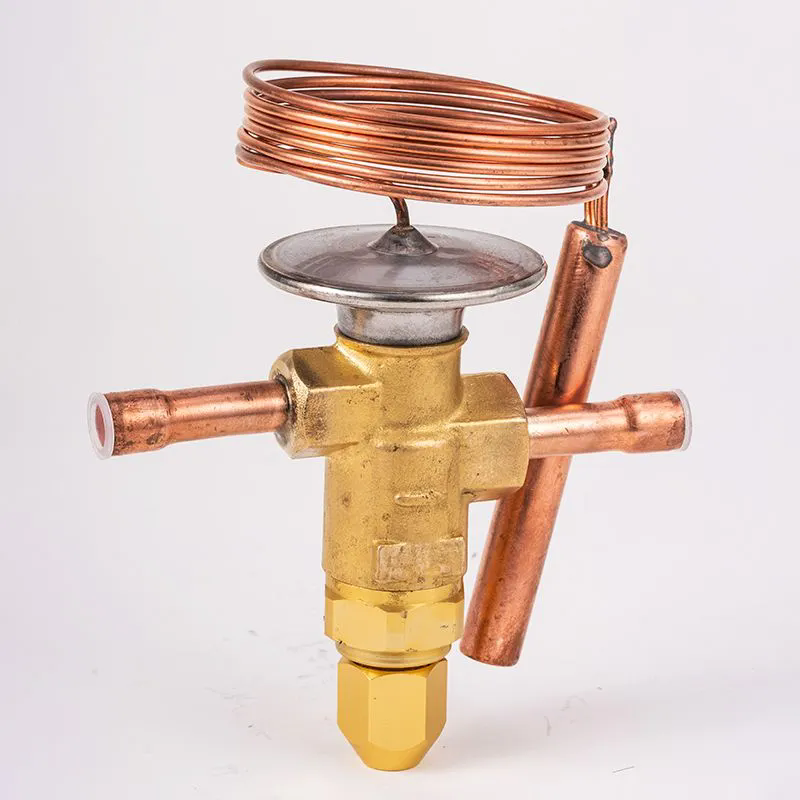What Is an Expansion Valve and Why Is It Crucial for Your HVAC System?
2024-11-22
If you've ever wondered how an HVAC system keeps your home or office comfortable, you might have come across the term "expansion valve." This small but essential component plays a significant role in regulating the flow of refrigerant, ensuring that your air conditioning or refrigeration systems operate efficiently. But what exactly is an expansion valve, and why is it so crucial for your HVAC system?
1. What Is an Expansion Valve?
An expansion valve is a critical part of refrigeration and air conditioning systems. Its primary function is to control the amount of refrigerant released into the evaporator coil. By regulating the flow of refrigerant, the expansion valve helps to maintain the desired temperature within the system. It does this by reducing the pressure of the refrigerant, causing it to expand and evaporate, which in turn absorbs heat from the air inside your home or business.
In simpler terms, the expansion valve is responsible for ensuring that the refrigerant is at the correct pressure and temperature before it enters the evaporator coil, enabling it to absorb heat and cool the environment.
2. How Does an Expansion Valve Work?
The expansion valve works by controlling the flow of refrigerant into the evaporator. Here's how it functions in the context of a cooling system:
- High-Pressure Refrigerant: Refrigerant from the condenser enters the expansion valve at a high pressure. The valve acts like a gatekeeper, regulating how much refrigerant enters the evaporator coil.
- Pressure Drop: As the refrigerant passes through the expansion valve, its pressure is drastically reduced. This pressure drop causes the refrigerant to cool and begin evaporating.
- Expansion and Cooling: The refrigerant then enters the evaporator coil as a low-pressure liquid. In the evaporator, the refrigerant absorbs heat from the air in the room, causing it to evaporate into a gas. This process cools the surrounding air.
- Cycle Repeats: Once the refrigerant has absorbed the heat, it returns to the compressor, and the cycle repeats.
3. Why Is an Expansion Valve Important for Your HVAC System?
The expansion valve is essential for maintaining the efficiency and performance of your air conditioning or refrigeration system. Here's why:
- Regulates Refrigerant Flow: By regulating the flow of refrigerant, the expansion valve ensures that the refrigerant reaches the evaporator coil at the right pressure and temperature. This allows the system to absorb heat effectively, leading to better cooling performance.
- Prevents Freezing and Overheating: If too much refrigerant flows into the evaporator coil, the coil can become flooded, leading to poor performance or even freezing. On the other hand, if too little refrigerant enters, the system may overheat, leading to compressor damage. The expansion valve prevents both of these issues by controlling the refrigerant flow precisely.
- Increases System Efficiency: With the right amount of refrigerant flowing into the evaporator, the HVAC system can operate efficiently, cooling the space faster and using less energy. This can help reduce electricity bills and extend the lifespan of the system.
- Ensures Proper Heat Transfer: The expansion valve ensures that the refrigerant expands and evaporates at the correct pressure and temperature, allowing for optimal heat transfer. This is crucial for the system’s cooling ability, ensuring that the desired temperature is reached and maintained.
4. Types of Expansion Valves
There are different types of expansion valves, each suited for specific applications. The most common types include:
- Thermostatic Expansion Valve (TXV): The TXV is the most widely used expansion valve. It uses a temperature sensor to adjust the refrigerant flow based on the temperature of the evaporator. This helps maintain a consistent superheat level, ensuring efficient operation.
- Electronic Expansion Valve (EEV): The EEV is a more advanced version of the TXV, utilizing electronic sensors and motors to control refrigerant flow. This type offers precise control over the refrigerant flow and is typically used in more sophisticated systems, such as variable refrigerant flow (VRF) systems.
- Automatic Expansion Valve (AEV): The AEV is a simpler type of valve that automatically controls refrigerant flow based on the pressure in the evaporator. While it’s easier to maintain, it’s not as accurate as the TXV or EEV, and it’s typically used in smaller systems.
- Capillary Tube: This is a very basic type of expansion valve, commonly found in smaller refrigeration systems. It consists of a long, narrow tube that controls refrigerant flow by reducing the pressure. While inexpensive, it lacks the precision of other valve types.
5. Signs Your Expansion Valve May Need Attention
Like all HVAC components, the expansion valve can wear out or malfunction over time. Here are some common signs that your expansion valve may need attention:
- Inconsistent Cooling: If you notice that your system is cooling unevenly or struggling to maintain a comfortable temperature, it may be due to improper refrigerant flow caused by a faulty expansion valve.
- Freezing Coils: If the evaporator coil is freezing up, it could be a sign that too much refrigerant is entering the system, overwhelming the coil’s capacity to absorb heat.
- Overheating: If your system is running hot, it could indicate that not enough refrigerant is reaching the evaporator coil, preventing proper heat absorption and causing the system to overheat.
- Unusual Noises: Strange sounds coming from your HVAC unit may indicate an issue with the expansion valve, such as a clog or a mechanical failure.
6. Maintaining Your Expansion Valve
To keep your HVAC system running smoothly, it's important to maintain the expansion valve. Here are some tips:
- Regular Inspections: Have your HVAC system professionally inspected and maintained regularly to ensure that all components, including the expansion valve, are working properly.
- Keep the System Clean: Ensure that the evaporator coil and refrigerant lines are clean and free from debris. Dirt and dust can clog the valve and reduce its efficiency.
- Check for Leaks: Leaking refrigerant can affect the operation of the expansion valve, so check for any signs of leaks in your system and have them repaired promptly.
7. Conclusion: Is Your HVAC System Working Efficiently?
The expansion valve is a small but essential part of your HVAC system that ensures the proper flow of refrigerant, maintaining efficiency, preventing damage, and improving cooling performance. By understanding its role, choosing the right type for your needs, and keeping it well-maintained, you can ensure that your air conditioning or refrigeration system runs smoothly for years to come. If you notice any of the signs of a malfunctioning expansion valve, don’t hesitate to call in a professional to inspect and repair your system.
In short, the expansion valve is the unsung hero that keeps your HVAC system working at its best—ensuring comfort in every season.



